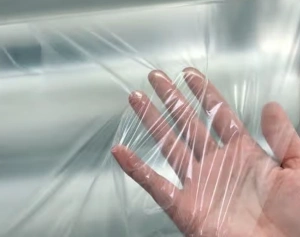Table of contents:
Analyzing the Lifecycle of Biodegradable Food Packaging Bags in Pet Industry
How Pet Food Companies Reduce Carbon Footprint with Eco-Friendly Packaging
The Role of Biodegradable Food Bags in Circular Economy Models
Measuring ROI When Investing in Sustainable Pet Food Packaging Solutions
Analyzing the Lifecycle of Biodegradable Food Packaging Bags in Pet Industry
The lifecycle of biodegradable food packaging bags in the pet industry presents a stark contrast to traditional plastic packaging. Wholesale biodegradable bags, often made from materials like polyvinyl alcohol (PVA), are designed to break down naturally, leaving minimal environmental impact. These bags start their journey as raw materials, are manufactured into packaging, used for pet food distribution, and then decompose after disposal. Unlike conventional plastics that persist for centuries, biodegradable options from biodegradable plastic bags wholesale suppliers can decompose within months under the right conditions, significantly reducing long-term environmental pollution.
How Pet Food Companies Reduce Carbon Footprint with Eco-Friendly Packaging
Pet food companies are making strides in reducing their carbon footprint by incorporating eco-friendly packaging solutions. By sourcing wholesale biodegradable bags, these companies not only minimize plastic waste but also decrease their overall energy consumption and greenhouse gas emissions associated with packaging production and disposal. The use of biodegradable plastic bags wholesale contributes to a lower carbon footprint throughout the supply chain. Additionally, these materials often require less energy to produce compared to traditional plastics, further reducing the environmental impact of pet food packaging.
The Role of Biodegradable Food Bags in Circular Economy Models
Biodegradable food bags play a crucial role in advancing circular economy models within the pet food industry. By choosing wholesale biodegradable bags, companies contribute to a system where materials are designed to be reused, recycled, or composted, rather than ending up in landfills or oceans. This approach aligns with the principles of a circular economy, where waste is minimized, and resources are kept in use for as long as possible. The biodegradable plastic bags wholesale market enables pet food manufacturers to participate in this sustainable economic model, creating a positive ripple effect across the entire industry.
Measuring ROI When Investing in Sustainable Pet Food Packaging Solutions
Investing in sustainable pet food packaging solutions, such as biodegradable plastic bags wholesale, requires careful consideration of return on investment (ROI). While the initial costs may be higher than traditional plastic packaging, the long-term benefits often outweigh the upfront investment. Companies that switch to wholesale biodegradable bags can expect to see returns in various forms, including enhanced brand reputation, increased customer loyalty, and potential cost savings from regulatory compliance. Moreover, as consumer demand for eco-friendly products continues to rise, businesses that adopt sustainable packaging solutions are better positioned to capture market share and drive growth in the competitive pet food industry.
The transition to biodegradable pet food packaging represents a significant step towards a more sustainable future for the industry. As wholesale biodegradable bags become increasingly accessible and cost-effective, more companies are embracing this eco-friendly alternative. The environmental benefits of reduced plastic waste and lower carbon emissions are clear, while the economic advantages of improved brand perception and market positioning are becoming increasingly evident. By integrating biodegradable packaging solutions, pet food manufacturers are not only contributing to environmental conservation but also setting themselves up for long-term success in an increasingly eco-conscious marketplace.

No comments:
Post a Comment